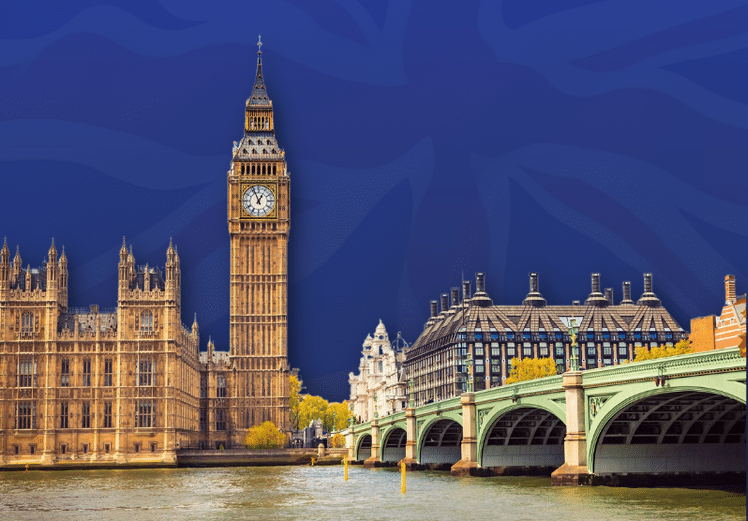GENERAL OVERVIEW OF STUDYING IN NEW ZEALAND
New Zealand, a beautiful island nation in the southwestern Pacific Ocean, is emerging as an attractive study destination thanks to its high-quality education system, safe and clean living environment, and supportive policies for international students.
General Information
- Country name: New Zealand (Aotearoa in Māori)
- Capital: Wellington
- Area: Approximately 268,021 km²
- Population: Approximately 5.3 million people
- Currency: New Zealand Dollar (NZD)
- Time zone: UTC+12 (New Zealand Standard Time), UTC+13 (New Zealand Daylight Time)
- Official languages: English, Māori, New Zealand sign language
- Climate: Generally temperate, with regional variations. Summers (December–February) are warm, while winters (June–August) are mild.
Education System
New Zealand is proud of its advanced education system, internationally recognized qualifications, and strict government quality control. The education system is divided into the following main levels:
- Early childhood education: From ages 0 to 5.
- Primary and Secondary education: From age 5 (Grade 1) to age 18 (Grade 13). International students can enroll in primary and secondary programs.
- Tertiary Education, includes: Bao gồm:
- Universities: New Zealand has 8 public universities, all ranked among the top institutions worldwide, offering Bachelor’s, Master’s, and Doctoral programs.
- Institutes of Technology and Polytechnics (ITPs/Te Pukenga): Provide vocational training programs, certificates, diplomas, and degrees, with a focus on practical skills.
- Private Training Establishments (PTEs): Offer specialized courses and vocational training programs.
Key highlights of New Zealand education:
- High-quality teaching with a focus on innovation and research.
- Qualifications recognized globally, equivalent to those from the US, UK, Australia, and Canada.
- A supportive learning environment that encourages critical thinking and independent learning.
Study abroad costs
New Zealand offers competitive study costs compared to other English-speaking countries.
-
Tuition fees (approximate per year):
- Secondary school: NZ$16,000 – NZ$25,000 (public schools) or higher (private schools).
- Diploma/Certificate programs: NZ$20,000 – NZ$25,000.
- Bachelor’s Degree: NZ$23,000 – NZ$40,000.
- Postgraduate: NZ$27,000 – NZ$35,000 (Master’s) and NZ$7,000 – NZ$8,000 (PhD) (PhD fees are often similar to domestic student rates).
- Specialized fields such as Medicine or Veterinary Science may have higher tuition fees.
-
Living expenses: On average, living costs range from NZ$20,000 – NZ$27,000 per year (approximately NZ$380–NZ$480 per week), depending on the city and lifestyle.
- Accommodation:
- Dormitory: NZ$150 – NZ$250 per week (single room).
- Shared rental housing: NZ$140 – NZ$293 per week/person.
- Homestay: NZ$110 – NZ$370 per week.
- Food: NZ$100 – NZ$150 per week.
- Transportation: Around NZ$25 per week (public transport pass).
- Other expenses (utilities, internet, entertainment): Approximately NZ$100 – NZ$200 per month.
- Accommodation:
Study requirements
- Academic qualifications:
- Secondary school: Completion of Grade 8 or Grade 9 in Vietnam with a minimum GPA of 6.5. Some schools may require an entrance test.
- Bachelor’s Degree: High school graduation with a recognized diploma and a minimum GPA of 6.0.
- Master’s Degree: Completion of a Bachelor’s degree in a relevant field with a GPA meeting requirements (usually 6.5–7.0 or higher).
- English proficiency:
- Secondary school: IELTS is not mandatory but recommended. Students may be required to take an English placement test at the school or enroll in a preparatory English course.
- Diploma/Bachelor’s: Generally require IELTS 5.5–6.0 overall (with no band below 5.0–5.5).
- Master’s/PhD: Typically require IELTS 6.5 overall (with no band below 6.0).
- Other accepted international English tests: TOEFL, PTE Academic, Cambridge English.
- Financial capacity: You must demonstrate sufficient financial resources to cover tuition fees and living expenses. According to the New Zealand Immigration Department, you must show at least: NZ$20,000/year for university study NZ$17,000/year for primary/secondary study
- Visa: Meet all health and character requirements.
Scholarships
To apply for a student visa to New Zealand, you will need to prepare the following key documents:
- A completed student visa application form.
- A valid passport (notarized copy).
- An offer of place from an approved educational institution in New Zealand.
- Proof of tuition fee payment or evidence of a scholarship.
- Proof of sufficient financial resources.
- Appropriate health and travel insurance.
- Medical examination report and chest X-ray certificate (if required).
- Police clearance certificate (if required).
- Passport-sized photographs.
- Evidence of English language proficiency.
- A clear study plan (Statement of Purpose).
Processing time: The New Zealand Immigration Department recommends submitting your visa application at least 3 months before your intended start date.
Job Opportunities
-
Part-time job during dtudies:
- International students are allowed to work up to 20 hours per week during the academic term and full-time during scheduled breaks.
- For students enrolled in a Master by Research or PhD program, there is no limit on working hours.
- Common part-time jobs include positions in hospitality, retail, sales, tutoring, and library assistance, among others.
- Part-time work offers a good source of income to help cover living expenses.
-
Post-graduation employment:
- After completing their studies, international students can apply for a Post-Study Work Visa, which allows them to stay and work in New Zealand for 1–3 years (depending on their qualification level and program duration).
- This is an excellent opportunity to gain international work experience and explore potential pathways to residency.
- High-demand industries in New Zealand include IT, Engineering, Healthcare, Education, Agriculture, and Construction.
- Gaining work experience, internships, and professional networks early will increase your chances of securing full-time employment after graduation.
Scholarships
-
New Zealand offers many scholarships for international students, including:
- New Zealand Government Scholarships: For students from developing countries, including Vietnam, at undergraduate to postgraduate levels.
- University Scholarships: Many universities offer their own scholarships for international students based on academic merit.
- NZSS (New Zealand Schools Scholarship): For secondary school students, covering up to 50% of first-year tuition fees.
Leisure, Entertainment and Culture
- Nature and Entertainment: New Zealand is renowned for its stunning natural landscapes, from majestic mountain ranges and green lakes to vast, pristine beaches. International students can enjoy a wide range of outdoor activities, including hiking, skiing, snowboarding, bungee jumping, kayaking, diving, and exploring unique wildlife and plants (the famous Kiwi).
- Culture: New Zealand has a diverse culture blending Māori traditions with European influences. New Zealanders (Kiwis) are known for their friendliness, openness, and passion for sports, especially rugby.
- Cuisine: New Zealand cuisine emphasizes fresh dishes featuring seafood, lamb, beef, seasonal fruits, and vegetables. You can try Hāngi (a traditional Māori meal), Pavlova (meringue dessert), and a variety of famous wines.
Conclusion
In summary, studying in New Zealand offers a well-rounded educational experience with internationally recognized quality, a safe living environment, and abundant opportunities for personal growth. If you are looking for an English-speaking country that combines academic excellence, cultural experiences, and career development, New Zealand is certainly a choice worth considering.
For more detailed information about studying in New Zealand, please contact PASSEDU for free consultation and support. Wishing you every success!
















